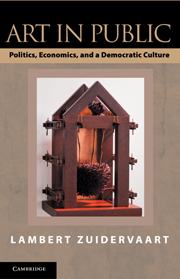8 - Authenticity and Responsibility
Published online by Cambridge University Press: 05 June 2012
Summary
No artwork…can be socially true that is not also true in-itself.
Theodor W. AdornoThe proposed link between differential transformation and art’s societal autonomy raises questions about autonomous participation in the arts. Would promoting this link so “politicize” art making and art interpretation that participation in the arts cannot be creative and dialogical? Would it in fact replace the opposed vanguardisms of transgressivists and fundamentalists with problematic progressivism of a different sort, burdening art with the task of changing society as a whole? Have I simply turned Adorno’s paradoxical modernism into an equally paradoxical post-postmodernism?
To begin to address these questions, and to elaborate my conception of interpersonal autonomy in the arts, this chapter explores a tension between authenticity and social responsibility in contemporary artistic practices. Although one can note earlier forms of this tension in modernist aesthetics, and although Adorno gave it particularly telling formulations, the shape of the tension has shifted in recent years. Adorno thought that modern art was one of the few places left where capitalist society can be challenged and genuine alternatives can be envisioned. Since his death in 1969, Adorno’s combination of aesthetic modernism and radical social critique has become increasingly difficult to sustain. This is due in part to contemporary tension around the ideal of artistic authenticity.
- Type
- Chapter
- Information
- Art in PublicPolitics, Economics, and a Democratic Culture, pp. 241 - 266Publisher: Cambridge University PressPrint publication year: 2010



